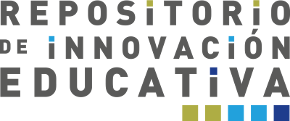Por favor, use este identificador para citar o enlazar este ítem:
https://www.innovacioneducativa.unam.mx:8443/jspui/handle/123456789/4302Registro completo de metadatos
| Campo DC | Valor | Lengua/Idioma |
|---|---|---|
| dc.contributor.author | Lara Barragán Gómez, Antonio | |
| dc.date.accessioned | 2020-03-02T16:06:02Z | - |
| dc.date.available | 2020-03-02T16:06:02Z | - |
| dc.date.created | 2016-08 | |
| dc.date.issued | 2016 | |
| dc.identifier.issn | 1665-2673 | |
| dc.identifier.uri | http://132.248.161.133:8080/jspui/handle/123456789/4302 | - |
| dc.description.abstract | Abstract: This paper presents the implementation of an educational model called “learning integration” and its four practical pedagogic principles in a physics course for first-year engineering students. The first part describes the educational model and its theoretical foundation. The second part explains the research methodology, which consisted in the implementation of a quasi-experimental model. The fulfillment of the operational requirements through which the principles are put into practice implies that the thought process be clear knowledge, accessible and learning, mutual and continuous. The follow-up to the implementation of these operational requirements was carried out through the evaluation of the activities in which the students participated and range from the development of an experimental demonstration to the use of electronic resources such as web pages and blogs. The benefits were reported using the normalized gain or Hake factor, and the results of periodic exams are considered, in addition to a system of constant evaluation. Finally, the comparative results are presented between control groups who received traditional instruction and the experimental groups, in which the operational requirements characterizing the principles were applied. The results indicate that the experimental groups showed higher academic gain and performance. On the contrary, in each evaluation period of the control groups, academic gain and performance were below those of the experimental groups, and both gain and performance of the control groups diminished throughout the semester. These results suggest that the implementation of the operational requirements of the corresponding principles generated a continuous improvement in learning. | |
| dc.language | es | |
| dc.relation.ispartof | SciELO México | |
| dc.rights | Derechos reservados | |
| dc.source | Innovación educativa (México, DF), 16(71):133-155 | |
| dc.title | Desarrollo y aplicación de una estrategia didáctica para la integración del conocimiento a la enseñanza de la física en ingeniería | |
| dc.type | Artículo | |
| dcterms.bibliographicCitation | Lara Barragán Gómez, Antonio (2016). Desarrollo y aplicación de una estrategia didáctica para la integración del conocimiento a la enseñanza de la física en ingeniería.Innovación educativa (México, DF), 16(71):133-155. Disponible en: http://www.scielo.org.mx/scielo.php?script=sci_arttext&pid=S1665-26732016000200133&lang=pt | |
| dc.identifier.sinne | SCI22 | |
| dc.identifier.url | http://www.scielo.org.mx/pdf/ie/v16n71/1665-2673-ie-16-71-00133.pdf | |
| dc.subject.keywords | Enseñanza de la física | |
| dc.subject.keywords | Generación Net | |
| dc.subject.keywords | integración del conocimiento | |
| dc.subject.keywords | principios pedagógicos pragmáticos | |
| Aparece en las colecciones: | Artículos científicos y académicos | |
Ficheros en este ítem:
No hay ficheros asociados a este ítem.
Los ítems de DSpace están protegidos por copyright, con todos los derechos reservados, a menos que se indique lo contrario.


